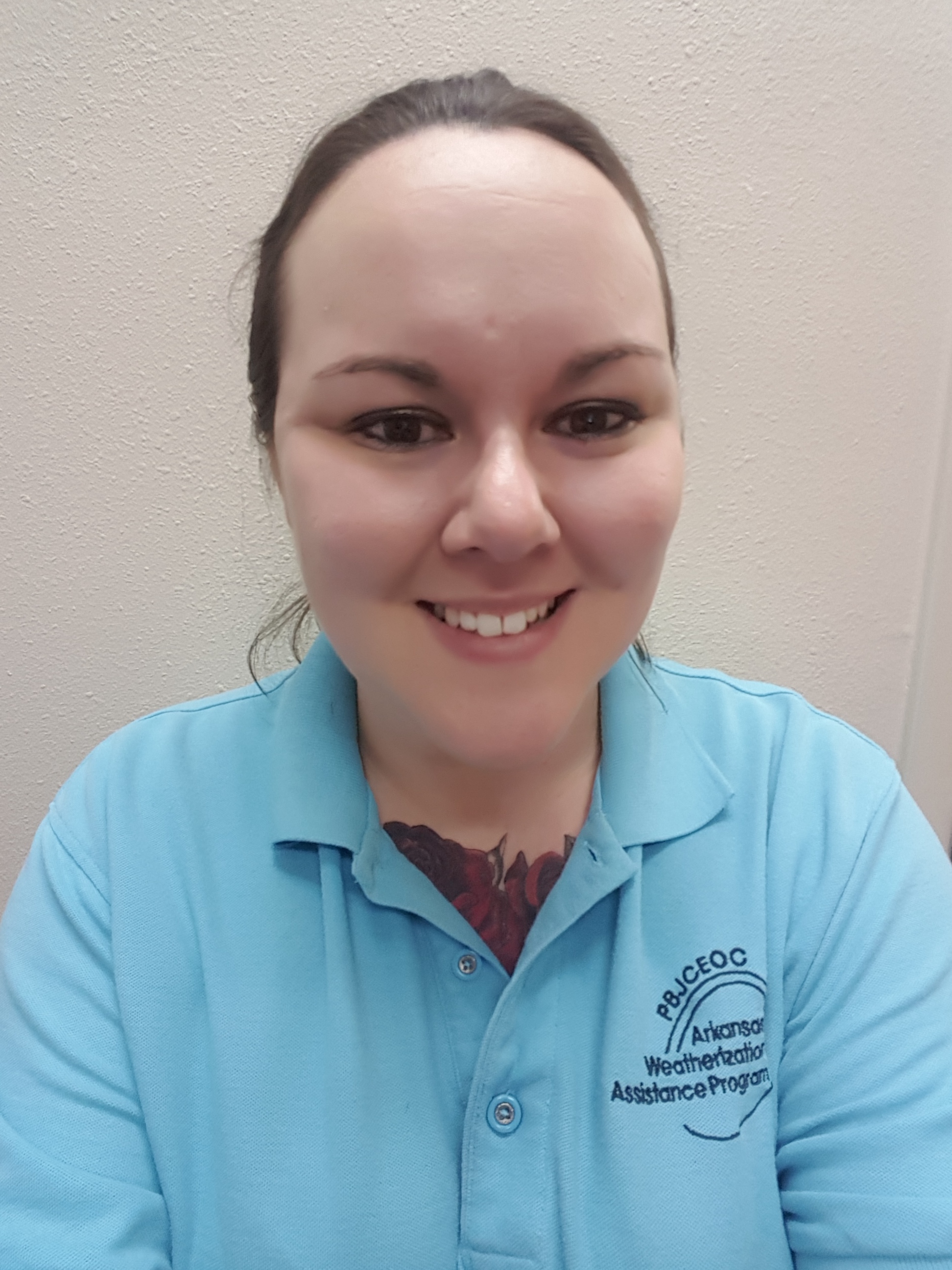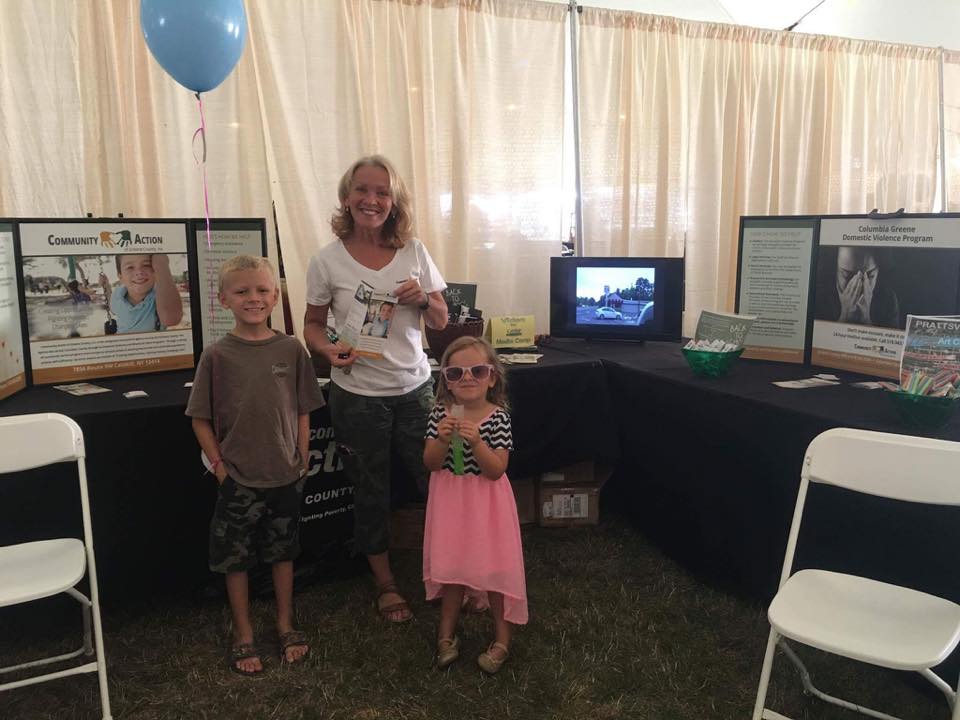The Weatherization Assistance Program (WAP) has been around for over 40 years and has served over 7.4 million households, saving families money and making their homes healthier and safer. From the very beginning of the WAP’s history, women have been a driving force in weatherization. This post is part of a month long feature for Women’s History Month. Each post will highlight a few of the women working across the country in the Weatherization Assistance Program. You can join the conversation on social media with the hashtag: #WomenOfWAP
Featured in this post…
Denise Chudy, Arkansas
Ashley Zavala, California
Jamie Linzey, New York
Denise Chudy
Energy Auditor, Pine Bluff Jefferson County EOC, Arkansas

1.How did you first get interested and involved in weatherization?
Honestly, the job kind of fell into my lap. I had just moved to Arkansas from Colorado and was actively searching for a new career. I had an old friend call and tell me she knew of an agency in Pine Bluff that was hiring an Energy Auditor. Since I had experience in the housing market I thought that it would be a fairly easy transfer for me. I applied and showed up for my interview and was hired the next week. Turns out, I have found my calling in life. I enjoy helping people and that’s exactly what I get to do everyday. I get to help low income families save money and energy in there home and we also do several health and safety measures as well which just adds to the benefits of the job I do.
2.Tell us about your current and past roles in the WAP.
Currently I am an Energy Auditor. I have completed BPI Building Analyst, EPA Lead safe classes, OSHA training, Applications for Infrared Thermography, and several other courses. Also, I have been accepted to sit in on the QCI test which I will be doing the beginning of March 2018, so I plan on adding that qualification to my resume as well!
3.What is it like being a woman in weatherization? Advantages? Challenges?
Being a woman in weatherization means being a team member, leader, role model and hard worker. I get to build a good rapport with my clients, I get to run audits and get my hands dirty right there with the guys in my field. Sometimes my male coworkers will try and do all the heavy lifting or they will insist that they go in the attic or under the house instead of me, but in reality I am just as capable of doing all the work as well. I am strong and smart. I have been through all the same classes and training. I can set up and run a blower door with the best of them and some days I have to just remind them that we are both qualified to do this and please step aside and let me take lead.
4.Why do you work in weatherization? What about your job makes you excited to go to work in the morning?
I drive an hour to the office Monday through Friday, not because it’s a fun drive, but because I enjoy my job. I have the privilege of helping people everyday. People who otherwise would not be able to help themselves.
5.Do you have advice for other women interested in joining the weatherization field?
Go for it! Get your foot in the door! Go to all the training you can, because there is always something new to learn in the field! Reach out to your peers and ask questions and don’t be afraid to get your hand a little dirty!
Ashley Zavala
Senior Weatherization Outreach Specialist , Community Action of Ventura County, California
1.How did you first get interested and involved in weatherization?
I actually got this job because the job I had applied for was filled already. So I got interested and I started learning more about weatherization. I knew nothing about weatherization before this job.
2.Tell us about your current and past roles in the WAP.
I am basically the first person to start the process to get people signed up for weatherization programs. I set appointments with clients & go into their homes to fill out paperwork & do a small assessment on their home.
3.What is it like being a woman in weatherization? Advantages? Challenges?
It’s sometimes funny because people never expect to see a woman in this type of field. People always tell me they were expecting a man to come out to their home. The advantages are that I know more about energy efficiency & weatherization than anyone I know in my personal life, so it’s nice to be able to teach my family & friends about it.
4.Why do you work in weatherization? What about your job makes you excited to go to work in the morning?
There’s nothing better than someone you helped being so appreciative for what you are doing. They show so much gratitude. I love getting hugs from people and just knowing I was able to help them in some way and lift a weight off their shoulders. My clients new & old make me love my job. Also seeing so many people in need makes me very appreciative of my life & everything i have.
5.Do you have advice for other women interested in joining the weatherization field?
Try to learn everything you can, even if it’s something you’re not going to be doing. Knowledge is power.
Jamie Linzey
Weatherization Program Director, Community Action of Greene County, INC., New York

1.How did you first get interested and involved in weatherization?
I worked for HEAP in Ulster county as a temp worker and was getting referrals from the weatherization department. When I finished my temporary position, I was asked to come to weatherization.
2.Tell us about your current and past roles in the WAP.
I have been the director for the weatherization program since 2013. I started in 2009, in a different county as a weatherization office manager.
3.What is it like being a woman in weatherization? Advantages? Challenges?
I work hard for the respect when dealing with subcontractors and or some new male hires.
4.Why do you work in weatherization? What about your job makes you excited to go to work in the morning?
I work in weatherization because it is what I know, and I like a challenge. It excites me to meet goals and that’s what keeps me coming back to work everyday.
5.Do you have advice for other women interested in joining the weatherization field?
Just keep in mind that although it can be rewarding, everyday is NOT a picnic. If work was always a party, it wouldn’t be called work. We would go to the party everyday.





